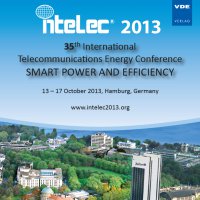Control of Plug-in Hybrid Electric Vehicles as Smart Grid Support within PV/Wind Power Generations
Konferenz: Intelec 2013 - 35th International Telecommunications Energy Conference, SMART POWER AND EFFICIENCY
13.10.2013 - 17.10.2013 in Hamburg, Deutschland
Tagungsband: Intelec 2013
Seiten: 6Sprache: EnglischTyp: PDF
Persönliche VDE-Mitglieder erhalten auf diesen Artikel 10% Rabatt
Autoren:
Abdelkarim, Emad; Leidhold, Roberto (Institute of Electric Power Systems, Faculty of Electrical Engineering and Information Technology, O.V.G. Magdeburg University, Germany )
Aly, Mohamed M.; Abdel-Akher, Mamdouh (Department of Electrical Engineering, Aswan Faculty of Engineering, Aswan University, Egypt)
Inhalt:
In this paper, the photovoltaic (PV) system, wind turbines, and plug-in hybrid electric vehicles (PHEVs) are considered to be main components of future distribution systems. The controllable load from PHEVs storage batteries is considering, which interacts with intermittent PV/wind power generations. A control strategy, using PI controllers, for the PHEVs storage batteries is developed based on clear sky scheduled power and constant wind turbine speed. With normal PV/wind power generations, the PHEVs are set in a charging mode. When PV/wind power generation fluctuates due to fast cloud transients or large wind speed variation the developed control strategy allows PHEVs batteries to mitigate these power fluctuations and avoids severe voltage transients on congested power systems. An actual solar irradiance data based on 5-second interval and wind speed data are used to simulate the impact of PV/wind penetration during a 24-hour period. The simulations are carried out for PV/wind without and with power fluctuation. The results simulate the impact of 25% PV and 25% wind penetration on a 90-node radial distribution feeder during the 24-hour period. PV/wind power generations were connected at buses 28 and 42 which display weakest voltages. PHEVs charging stations were assumed at the same buses of PV/Wind generations plants. The results show that during PV/wind power fluctuation, the application of PHEVs storage batteries is required to alleviate the feeder voltage flicker. The developed controllers can be integrated with the charging station smart meter and can be extended for real time billing schemes in both charging and discharging modes.


